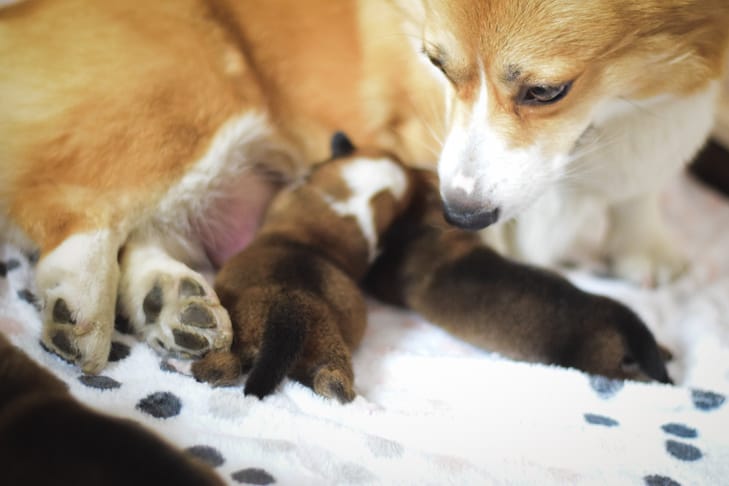Understanding the Role of a Responsible Dog Breeder
What Makes a Responsible Dog Breeder
Finding a good dog breeder is really important for anyone looking to get a puppy. A responsible breeder shows off a few key traits that set them apart from others.
- Knows their breed: They have a solid understanding of the breed’s unique characteristics, behavior, and health challenges.
- Health clearances: They’ll give you health clearances for their breeding dogs showing they care about avoiding genetic issues.
- Clean and safe space: Their setup is clean and organized so the dogs grow up in a healthy environment.
- Cares about the pups: You can see they truly care about the puppies’ well-being, focusing on lasting relationships instead of quick profits.
- Easy to talk to: A great breeder is open about their breeding practices, ready to answer your questions and welcome potential owners to check things out.
One dog owner shared their experience: “When I met the breeder, I was not just impressed by how clean everything was but also how socialized and well cared for the puppies were. The breeder was excited to share health details and really took the time to answer my questions.”
Why Picking the Right Breeder Matters
Choosing your breeder is super important for welcoming a happy and healthy furry friend into your life.
- Quality over quantity: Responsible breeders focus on quality, making sure every puppy is well-bred and cared for.
- Support for life: A good breeder sticks around to help long after the puppy goes home, giving you advice throughout your dog’s life.
- Fighting puppy mills: Choosing a responsible breeder helps stop puppy mills and supports ethical breeding practices.
In short, a responsible breeder is more than just someone who sells puppies. They are your partner on the journey of dog ownership, helping you find the perfect furry companion.

Finding and Researching Good Dog Breeders
Looking for Local and Online Breeders
When you’re on the hunt for a puppy, researching potential breeders is a big deal. Nowadays, there are two main ways to find reputable dog breeders: local spots and online resources.
- Local breeders: Start by checking out your local kennel clubs or breed-specific groups. They usually keep lists of good breeders who follow strict ethical guidelines. Going to local dog shows can also be a great way to meet breeders and see the dogs up close.
- Online resources: Websites like the AKC can help connect you with breeders who are all about following breed standards. Social media can also be helpful—check out breeders’ pages, their discussions, and reviews for background.
Another owner shared: “I started my search online and found a lot of local breeders on Facebook. Their posts showed happy puppies and satisfied owners, which made it easier for me to choose.”
How to Spot a Good Dog Breeder
Recognizing a responsible breeder is key to setting up a healthy relationship with your new pet. Here are some signs to keep an eye out for:
- Health clearances: They should have health testing results for their breeding dogs readily available.
- Knowledgeable and approachable: A good breeder welcomes your questions and is well-informed about the breed’s traits and health issues.
- Clean space: Their place should be tidy and well-kept, showing they care about the dogs’ comfort and health.
- Limited litters: They should limit how many litters they have each year so every puppy gets the attention it needs.
Also, it’s a good sign if the breeder wants to get to know you. They should care about finding the right home for their puppies as much as you do.
Doing thorough research on breeders not only helps you find a healthy pup but also builds a positive relationship with the breeder.

Checking Out the Breeding Environment and Practices
Visiting the Breeder’s Place
If you’re serious about finding a good dog breeder, visiting their place is a must. This helps you see the breeding space for yourself and makes sure it meets certain quality standards.
- Cleanliness: Check out how clean the facility is. Are the kennels tidy and well-kept? Responsible breeders take pride in their work and it shows in their environment.
- Socialization: Watch how dogs get along with each other and with people. A reputable breeder makes sure their puppies are well-socialized, exposed to different experiences, and at ease around humans.
- Mother dog present: The mom should be there and look well taken care of, at ease and nurturing to her puppies. Her behavior gives clues about the breeder’s practices.
A potential puppy parent shared: “When I went to see the breeder, I was amazed by how lively the puppies were and how calm the mother acted. The clean and organized space gave me confidence in my choice.”
Assessing Breeding Practices and Standards
Besides how clean the place looks, it’s also key to dig deeper into the breeder’s practices and standards.
- Health testing: Ask about health clearances for breeding dogs. Responsible breeders should do genetic tests and have documentation on hand, which helps secure the puppies’ future health.
- Breeding goals: Get to know what the breeder is aiming for. A reputable one focuses on breeding healthy dogs with good temperaments that fit breed standards, not just making money.
- Limited number of litters: Think about how many litters the breeder has each year. Responsible ones usually don’t have many litters to give their dogs the needed care and attention.
Overall, inspecting the breeding space and practices helps build trust in your choice to welcome a new puppy into your life. Taking the time to review these factors means you’re backing ethical breeding practices focused on dog welfare.

Making Sure Dogs are Healthy and Well-Taken Care Of
Health Tests and Certifications
One sign of a good dog breeder is their focus on health testing and getting the right certifications for their breeding dogs. This sets the stage for having healthy puppies and helps avoid hereditary health problems.
- Types of health tests:
- Hip X-rays: These can help spot hip dysplasia, a common issue in various dog breeds.
- Thyroid tests: Blood tests can show how the thyroid is working and the overall health.
- Genetic screening: Knowing if a dog carries particular genetic disorders is key info for breeders making informed choices.
Here’s a positive example from a dog owner who worked closely with their breeder: “Before I took my puppy home, the breeder showed me health clearances for both parents. It gave me confidence that I was getting a healthy puppy.”
Breeders should join organizations that require health testing, like the Orthopedic Foundation for Animals (OFA). Making sure the breeding dogs are healthy means a happy lifetime for puppy parents.
Socialization and Training Programs
Besides health, good socialization and behavior training are super important for a dog’s growth. Responsible breeders make these parts a priority to help puppies grow into well-adjusted adults.
- Early socialization: Puppies should be shown different environments, sounds, and people during their early weeks at the breeder’s home. This helps them become confident and adaptable.
- Training programs: Many good breeders use basic training programs or team up with trainers to teach essential commands and obedience before the puppies go to new homes.
One owner said, “The breeder not only raised lovely puppies but also offered early training. My dog was so easy to train later on thanks to the groundwork done before I brought him home.”
To wrap it up, responsible breeders prioritize the health and well-being of their dogs through thorough health testing and providing a strong foundation for socialization and training. This results in puppies that are not just physically healthy, but also well-rounded companions, ready for a joyful life with their new families.

Building a Positive Relationship with Your Breeder
Communication and Openness
Creating a good relationship with your dog breeder starts with clear communication and being open. A responsible breeder values communication, which builds trust and helps make the transition easier for both the puppy and the new owner.
- Sharing knowledge: A good breeder is well-versed about their breed and can offer valuable insights. They should be happy to answer any questions you have about your puppy’s health, temperament, and care.
- Transparency in methods: It’s key for the breeder to be upfront about their breeding practices. Ask how they handle health testing, socialization of puppies, and any health problems. A good breeder won’t hold back on this info and might even invite you to come by and see for yourself.
One dog owner shared their experience: “When I was looking for a puppy, my breeder made sure to cover every detail about her breeding practices with me. She shared health records freely and was honest about any concerns, which made me confident in my choice.”
Ongoing Support and Resources
Once your puppy is home, ongoing support from the breeder can be super helpful in your dog’s early days.
- Guidance: A responsible breeder should give you tips on training, nutrition, and health care. This support is really useful, especially for first-time dog parents.
- Lifelong support: A great breeder sees the commitment as long-lasting. They should be there for follow-up questions or worries about your dog, offering help and tips as you go.
A new puppy owner mentioned, “After getting my puppy, I reached out to the breeder with some training issues. She gave me useful advice and resources that helped us adjust better.”
In the end, developing a good relationship with your breeder revolves around clear communication and continuous support. This partnership not only enhances your experience as a new dog owner but also contributes to your puppy’s well-being and growth.

Managing the Adoption Process Responsibly
Contracts and Guarantees
Sailing through the adoption process starts with getting why contracts and guarantees from the breeder are important. A good breeder will give you a clear contract that protects both you and the puppy.
- What to look for:
- Ownership transfer: The contract should state that you will become the legal owner of the puppy once you adopt it.
- Health guarantees: Good breeders often include health guarantees that cover common genetic issues in that breed.
- Return policy: It’s important to include a ‘return-to-breeder’ clause, making sure that if you can’t keep the dog you’ll return it to them and not take it to a shelter.
Think about this experience: “When I got my dog, the breeder gave me a detailed contract that laid out everything—health guarantees and what would happen if I couldn’t keep the dog. It made me feel secure knowing there was a plan.”
Breeder’s Guidance on Responsible Ownership
Besides the contract, good breeders often share guidelines for ownership that can really help new puppy parents.
- Feeding tips: Advice on what and when to feed your puppy based on its specific needs.
- Socialization and training resources: Suggestions for training classes since starting socialization early is key for a happy and healthy dog.
- Ongoing support: A good breeder sticks around as a resource for any health care needs or training issues as your puppy grows.
A fellow dog parent shared: “My breeder checked in on me a few weeks after I brought my puppy home. She provided lots of training resources that helped us bond and adapt together.”
To sum it up, handling the adoption process the right way is more than just getting a puppy. It involves making sure you have a solid contract and following your breeder’s ownership advice to help build a supportive relationship for both you and your new furry buddy.

Leave a Reply